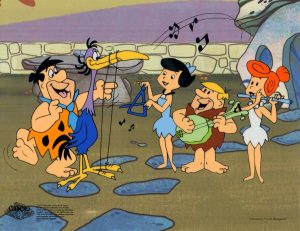
Daniel Kahneman is the
father of behavioural economics for which he won a Nobel prize in 2002 for his revolutionary theories that challenged the idea that economics worked on the basis of humans being rational. He showed instead that economics really operates on the basis of dumb instinct.
When I saw him speak (thanks to Rory Sutherland) he said: “people think that they are the Oval Office, in fact they are the Press Office.” At the time Obama was running the Oval Office. One wonders whether Kahneman is still using the analogy?
Overall of course Kahneman definitively shows that whilst we think we make decisions on a rational basis, in fact we usually don’t. We make them on the basis of powerful instincts that have evolved over millennia.
It’s crucial to bear this in mind when we consider research findings about advertising and content. People will explain their motivation rationally rather than simply and instinctively.
The elections of the last 18 months show us that people convince themselves they’re voting on the basis of evidence when in fact they’re voting with emotion.
This is crucial to bear in mind when we come to build teams and consider office culture.
Without a great culture a business will suffer. What makes a great culture work well? When teams look out for each other, and care about the company as a whole, rather than when the individuals in the team compete with each other.
There’s a theory that 150 people is a great size for a business. Yet with 150 people working together you have the problem of good team dynamics. In fact in a team of 20 or fewer you can have the problem of team dynamics.
There’s a number of reasons this arises. If the structure of the organisation is hierarchical and pyramid shaped then everyone knows that they’ve got to beat everyone else at their level to build their own career. This can happen if the organisation operates a “dead men’s shoes” policy where you only ever get promoted into an open role.
If the organisation takes people at entry level every year, but only 25% of them are still there 3 years later this brings out a kill or be killed instinct.
If there’s an aspect of matrix management, whereby you work for one manager but have a dotted line into another, and it’s an unusual organisation that does not have an element of this these days, whether it’s local to global or vertical specialists to horizontal generalists, then deep rooted tribal instincts operate which can mitigate against all kinds of theoretical team bonding.
Yuval Noah Harari writes in
bestselling “Sapiens”: “Homo Sapiens evolved to think of people as divided into “us” and “them”. “Us” was the group immediately around you, whoever you were, and “them” was everyone else.”
People are the only species according to Harari who actually can cooperate beyond the immediate group.
To achieve this a team culture needs nurturing.
Harari cites 3 ways in which people have evolved to work productively together that developed in the first millennium BC.
First economic. Can everyone share monetarily if the business succeeds or is it just the top people?
Secondly political. This a toxic and very energy draining way of manipulating people into working across teams.
Thirdly, and most powerfully, belief. If the culture has a core belief that everyone can buy into and contribute to then everyone is in it together.
This entry was posted
on Thursday, August 10th, 2017 at 3:55 pm and is filed under MediaComment.
You can follow any responses to this entry through the RSS 2.0 feed.
Responses are currently closed, but you can trackback from your own site.
Them and Us
This entry was posted on Thursday, August 10th, 2017 at 3:55 pm and is filed under MediaComment. You can follow any responses to this entry through the RSS 2.0 feed. Responses are currently closed, but you can trackback from your own site.